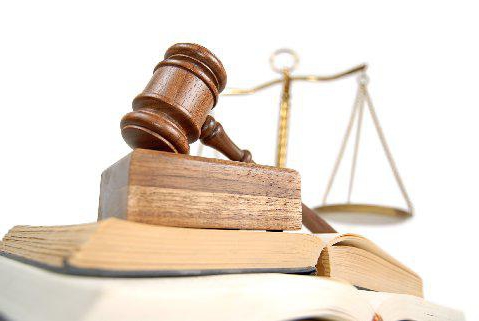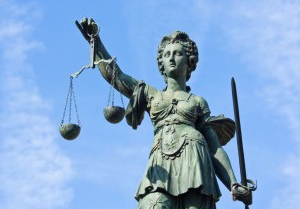The causal connection in criminal law, the concept and meaning of which will be described below, is a connecting link between a crime and the circumstances arising from it, which are dangerous for society. Its presence acts as a prerequisite for holding a person liable if the composition of the illegal act in terms of the objective side is material in nature. Next, we consider what happens causation in criminal law, its criteria and significance. 
General information
A citizen can only answer for those consequences that are the result of his actions. In terms of materialist philosophy, causation in criminal law is objective. This means that it exists regardless of the will and consciousness of man and is knowable. Before the presence or absence of guilt is established, a causal relationship must be determined. Criminal law suggests that if there is no connecting link, then you cannot call a person guilty of the consequences.
Identification Features
In many situations, to establish a causal relationship, it is necessary to turn to special knowledge. In this regard, often when solving this issue during the preliminary trial and judicial review, expert research is required. Nevertheless, lawyers make final conclusions about whether causality exists or is missing. In criminal law, examples of such situations are quite common. So, during the examination, a specific amount of certain circumstances may be established. They may be violations of the doctor’s recommendations, violent acts, insufficient or timely assistance, and so on. However, their legal assessment, which is expressed in the selection of specific articles of the Criminal Code, will be carried out by the court. 
Establishment process
In most cases, causation in criminal law is fairly straightforward. If the act is aimed directly at achieving a specific result, and there is no time gap between it and the circumstances that have arisen, then the presence of this objective link is obvious. It is also not difficult for cases when a causal relationship is established in criminal law between the actions of the accused who seized property during the theft and the circumstances that arose in the form of pecuniary damage, between insults and damage to the person’s dignity and honor, and so on.
Likely difficulties
However, causality is not always easily established. Criminal law describes cases where it is very difficult to identify it. In particular, this concerns the violation of special regulations, encroachment on the health and life of a citizen. In such cases, the ensuing consequences are often divorced from the act in time. Moreover, their type and severity can be influenced by multiple factors, including those that are not under the control of the encroaching person. So, the release of hazardous substances at nuclear power plants can be triggered by a number of reasons. Among them are the violation by the employees of the rules of operation of the facility, and poorly performed maintenance of power equipment, and defects in the design and subsequent construction of the station. An accident can be caused by several factors at the same time.The subject who will be punished, as well as the seriousness of the proposed measures, will depend on exactly what circumstance will be recognized as the reason. 
Paradoxes
Not in all cases is it possible to establish causality only intuitively. So, the paradox of two killers is widely known. One added to the water a man bound for the desert, poison. The second killer tried to shoot him already on the trip. But he fell into a flask of water. As a result, a person died of thirst. Thus, the first offender did not commit the killing directly, as the victim did not drink the poisoned water. There was an attempt. The second criminal also did not kill (although in this case there was an attempt), since he did not hit a person. However, the victim died. And in this case it is obvious that if it were not for the actions of the attackers, this would not have happened.

Causation in Criminal Law: Types
There are two main categories that are characterized by subjective composition. So, causation may be:
- Straight. In this case, events develop, provoked by inaction or by action posing a danger to society, and leading to a criminal result. They occur without the intervention of other independent forces, in particular other human misconduct. For example, when fired, a bullet hit the heart.
- Complicated by the joining of the incoming forces. Such a relationship is characterized by:
- the formation of a real opportunity for the occurrence of a dangerous (harmful) result;
- the action of independent new forces through which this opportunity is realized.
The more independence the incoming forces that intervene in the development of events will have, the narrower will be the limits of responsibility of the person who has created the conditions for the occurrence of dangerous circumstances. The guilty person will be punished within the direct intent of those acts that he intended to commit and committed. 
Dialect-materialistic theory
She gained distribution in domestic criminal law. According to this theory, a distinction is made between causes (phenomena that cause the immediate onset of dangerous circumstances) and conditions (factors that cannot independently provoke consequences, but create an opportunity for them). These two components form, in turn, the act of a person who has the characteristics of the subject of an illegal action (a certain age, sanity, and so on). The causes of criminal circumstances are not the forces of the elements, the behavior of minors, insane animals. Along with this, the criminal act must be purposeful, motivated and strong-willed. If a citizen commits a violation under the influence of coercion or force majeure, but not of his own free will, then he cannot be considered criminally punishable, and therefore cannot serve as the basis for the occurrence of consequences that are dangerous for society. 
The main signs of causation
To become a basis, a criminal act must form its properties the actual possibility of consequences. So, if someone sends a man to the sea, hoping that he will drown there, and this happens after a while, then the connecting link in this case is absent. In this situation, sending a citizen to the resort itself does not pose a real danger. She appears immediately at the time of bathing. The basis (reason) should act as a necessary condition for the emergence of circumstances dangerous to society. It can be established that if the act had not been committed, the consequences would have occurred anyway. In this case, the act is not considered a cause.
In modern practice, the question of inaction remains controversial. Some authors believe that causation also occurs in this case. This position is explained by the fact that when committing actions, a person actively contributes to the onset of dangerous circumstances.With inaction - passive behavior - a citizen allows the existing consequences to be realized.